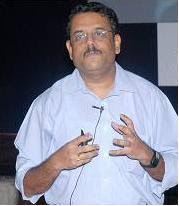On one hand the Rapid rate of technology changes have pushed organizations in this catch up game of specialization; on the other side Customer needs are changing -expecting personal attention, demanding more with less, faster & cheaper with better quality products and services.
Whether
we look at technology domains or the functional domains like retail,
manufacturing etc., each of them are changing at a fast pace, the business
models are changing, use of technology is increasing, customer expectations are
getting more personal. Each of these domains needs specialization with deeper
knowledge to manage in their respective functional areas. It is becoming more
and more difficult for large organizations to maintain balance between
functional expertise and business expertise. As business grows and
specializations increase, more and more organizations have quickly adopted
quality systems to standardize and streamline the operations. Standardization
and Specialization worked perfectly in the era of mass customization, but in
today’s internet age customers expect individual care and attention. In
addition to rapid changes in technology and business models, the customer
expectations have become more personal and individual experience based.
As we
saw in the case of Platinum customer, too much specialization and standardization make
the customer irrelevant. Customer needs are either looked through the lens of
specialized functional silos or through the standard processes and systems.
With more and more standardization and specialization, customer service
management becomes mechanical with no human touch. In earlier sections we
studied the influence of command & control model which has put us on
autopilot of winning and control. The silo mentality forces us to think
vertically with no interest in the broader aspects and the big picture,
similarly we are fixated on the events and transactions due to process centric
mentality. Zappos, a company known for its innovation and service excellence, encourages it’s employees to be adventurous, creative and open minded. At Zappos, they don’t measure call times, the average handle time which focuses on how many calls each rep can take in a day. They think performance metrics like this can translate into reps worrying about how quickly they can get a customer out of the phone. The customer executives are not given any scripts, because they trust their employees to use their best judgment when dealing with each and every customer. The customer executives are given the freedom to let their true personalities shine during each interaction and to emotionally connect with the customers. When customer calls looking for specific styles of shoes that is out of stock, in those instances every rep is trained to research at least 3 competitor web sites and direct the customer to the competitor like the vegetable vendor.
Zappos is a classic example where they have achieved highest in service excellence by enabling every customer executives to be who they are, instead of scripts & rigid processes they are given the freedom to let their true personalities shine during each interaction with the customers.
Service Leaders as Reflective Practitioners coach
their team members to look at every customer situation as unique and help them
to balance between rigor and relevance to walk in the swampy, low land. The
passion & ownership of vegetable vendor & Zappos employee needs to be
ignited in every individual worker and that happens only when we have a shared
Vision and employees are given the freedom to let their true personalities
shine during each customer interaction.
Copyright Sunil P Rangreji

